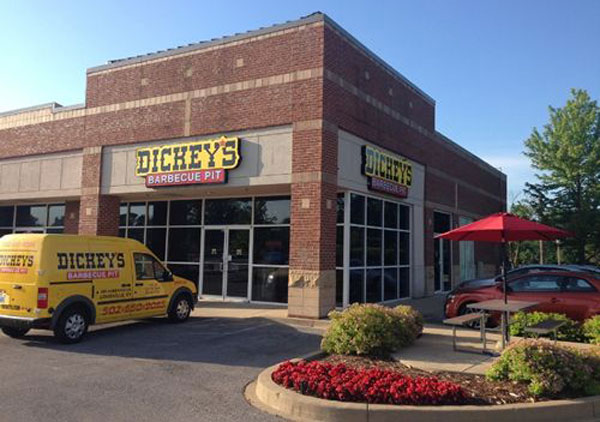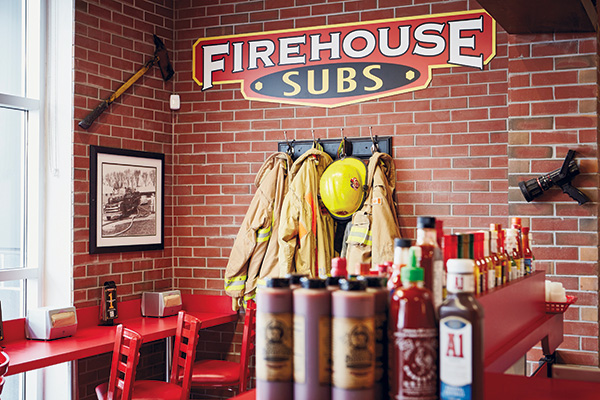Arguably, the most important decision to be made in any restaurant build or major remodel is who will serve as general contractor. Get that right, and odds are the project will finish on budget, on time and with a minimum of headaches.
Get it wrong and you open yourself and your company up to a Pandora's box of issues that can take a huge toll on timing, budget and quality of work — and quickly turn normal project-related headaches into full-blown migraines.
Avoiding missteps in this critical area starts with careful due diligence and a willingness to look beyond the estimate, says Randy Alper, who during a 40-year career has served as regional facilities manager at Boston Market and director of construction and facilities at Hard Rock Café-Planet Hollywood and has also worked on the contractor side. Alper, who is currently East Coast regional facilities manager for the 24 Hour Fitness club chain, says step one is to check out a potential GC's financial status. "Whether you're doing 1 restaurant or 100, you have to make sure the contractor is financially stable. You don't want them overwhelmed and becoming cash-strapped in the middle of a project. If that happens, you suffer," he says.
Even long-standing contractors with high visibility in a marketplace warrant a thorough financial vetting, Alper says. He cites a recent example of a project gone awry at his current company that got underway prior to his coming aboard last summer. "They were building a huge 71,000-square-foot fitness club in New Jersey, and the contractor was late and delayed the opening by nearly two weeks. A warranty against late opening was built into the contract, which turned out to be something like $35,000 a day. The GC subsequently couldn't pay his subcontractors. We still had issues with things like air conditioning and lighting, but they weren't willing to help us because they knew the GC couldn't pay them. And the GC couldn't do it because he didn't have any money built into his warranty, so ultimately we got stuck. The end user winds up having to bring someone else in to get it done because, no matter what, you still have to open and do business. That GC had been in business for 39 years. It's their market. They've built shopping centers, hospitals, etc., throughout the state. But they failed to plan for the worst in this instance and weren't financially stable enough to weather the consequences of delays."
Due Diligence: Time Well Spent
Checking out a contractor's financial status and general business standing takes time, but information is readily available in public records, according to Alper, and it's time well spent. "You can run a Dunn & Bradstreet report, check them through the Better Business Bureau or Chamber of Commerce or set up a credit check," he says. "It's a relatively easy process to find out about their finances and if they've had complaints made against them. You just have to do to the legwork. If you don't and you have problems later, you've got no one to blame but yourself."
Greg Pool, co-owner at Angle Contractors LLC, a Raleigh-Durham, N.C.-based general contractor that works with restaurant chains including Buffalo Wings & Rings, says checking references and knowing exactly what experience a contractor brings to the table are also critical. "You don't just want a contractor, you want a contractor that has built restaurants before," he says.
While not typically an issue with experienced franchise operations, he says, independent restaurants hiring contactors for the first time or for one-off jobs often go for price over experience. "With restaurants, there's so much that can go wrong. You really do need someone experienced with the unique plumbing, lighting, HVAC and equipment needs of restaurants. Smaller owners often end up looking only at price: They just want to get into the space, get it open and get the cash register ringing. But what they often learn too late is that if they pick the wrong contractor and things start to go wrong and don't work the way they're supposed to, they're going to lose a lot of time and money trying to correct those issues. At best, they'll have a lot of change orders handed to them; at worst, the contractor won't be able to finish the project because he's in over his head."
Both Pool and Alper recommend contacting several previous clients for references. "You want to make sure from others who've worked with them that they came in on time and didn't have a thousand change orders,"
Alper says. "And you want to get recommendations from a broad scope of their clients, not just from people that you know."
He adds that it's always a good idea to ask for references within the subcontractor community, as well. "If you get a GC that you like and that proves to be financially stable and previous clients say good things about, you still want to talk to his subs. If the subs aren't treated well or aren't getting paid, it can become a problem for you and for your opening."
While checking references, also check in on the contractor's licensing and insurance to make sure all are legitimate and up to date. Says Pool, "Make sure the contractor is licensed for the types of work that you are employing them to do. Beyond that, it's their job to ensure that the subcontractors have the proper licenses. At a minimum, all commercial contractors must carry general liability and workers compensation insurance. This will need to be provided to the landlord prior to construction, so it is good to ask. If they don't carry the proper insurance, the project may be delayed."
Qualitative Considerations:Communication and Rapport
Beyond such quantitative aspects as finances and licenses, hiring a general contractor means also hiring someone you trust and whom you can communicate with effectively and comfortably day in and day out. Spend some time getting to know the people, getting a sense of their responsiveness and how they communicate.
"It seems obvious, but you want to be able to feel comfortable with whoever it is that you're talking to," Alper says. "You want to be able to have real conversations and an honest relationship, to be accessible and responsive to one another. This whole area of communications is often the most problematic of the GC-client relationship. GCs often will tell you only what you want to hear versus what you need to hear, which leads to change orders later on and/or unexpected issues."
To guard against that, Alper suggests frequent update meetings, especially the closer it gets to opening. He also recommends having someone from the restaurant company's team on site, asking the right questions and making sure you're getting the right information on a timely basis. "Yes, contractors have documentation that they need to complete every step of the way, but what happens is that without someone there regularly representing them, the end user has little idea of where things really stand. Contractors often just don't return calls, and if that's your only means of getting in touch with him, you're in the dark. You can go to the site and talk to the subs, but all they'll tell you is what the GC has told them to tell you because, at the end of the day, that's who's paying them. So it does behoove you to have your own guy on property."
And just as important as establishing an easy, two-way flow of information is building rapport, he adds. "Build a nice, decent, professional relationship with the GC. If you do that versus stepping on toes or pushing him around or really aggravating him, he'll go the extra mile for you. Have a laugh with him, bring him coffee in the morning, spring for lunch — do those things, and the GC and subs alike will go well above and beyond to help you. These kinds of things provide a huge return on a very small investment every single time — no matter who you're hiring."



